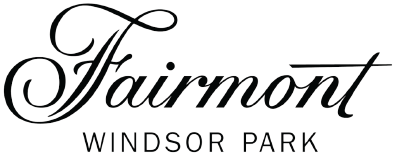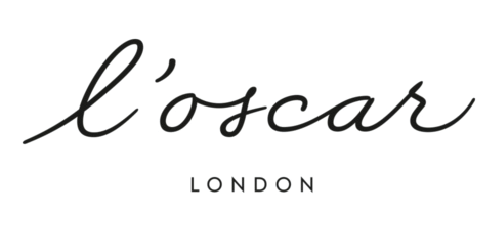
Investing your hard-earned money is a huge decision - a decision that requires careful consideration. Before beginning any investment, be sure to consider your financial goals, investment timeframe, and risk tolerance. Likewise, consider seeking professional guidance where relevant.
Doing so can help you to achieve long-term financial success. Whether you’re planning for retirement, saving for a rainy day, or looking for regular income, finding safe investments is key. High-risk options may offer higher returns, but they can also cause you to lose money.
So, what are some of the safest investments in the UK? That’s what we’ll be exploring in this blog post. Read on to learn more about fixed-rate bonds, ISAs, blue-chip art and other low-risk investment options.
Fixed Rate Bonds
Fixed-rate bonds and corporate bonds are great options if you’re looking for a low-risk investment that offers stability and predictable returns. These bonds are issued by governments or corporations and pay a fixed interest rate over a specified term. These medium to long-term investments can range from one to five years.
With fixed-rate bonds, your capital is secure. You’ll have peace of mind knowing exactly how much interest you'll earn throughout the duration of the bond. Ultimately, fixed-rate bonds are a great low-risk investment with guaranteed returns and are a great choice if you’re looking for monthly income.
Individual Savings Accounts (ISAs)
ISAs are a tax-efficient way to save and invest your money. There are several types of ISAs available, including Cash ISAs, Stocks and Shares ISAs, and Innovative Finance ISAs.
Cash ISAs are similar to regular savings accounts - however, they offer tax-free interest. Stocks and Shares ISAs allow you to invest in a variety of assets, such as stocks, bonds, and mutual funds, without paying tax on your investment gains.
If you’re looking for higher interest with low risk, opt for a fixed-term ISA. Ultimately, ISAs provide flexibility, security, and the potential for growth. They are one of the safest forms of investment.
Money Market Funds
Money market funds are another safe investment option. If you’re a conservative investor, money market funds are a great choice. These funds invest in short-term, low-risk securities such as government bonds, certificates of deposit, and high-quality corporate debt.
Although money market funds may offer lower returns compared to riskier investments, they provide stability and liquidity. They can preserve your capital and help you to maintain a steady stream of income.
Exchange-Traded Funds (ETFs)
Next, we have exchange-traded funds. These have become more popular in recent years as they’re a cost-effective investment option. ETFs are investment funds that trade on stock exchanges and hold assets such as stocks, bonds, or commodities.
They can provide exposure to a wide range of markets and sectors while offering liquidity and transparency. ETFs are known for their low fees and tax efficiency, making them a great option whether you’re a new or seasoned investor looking for minimal to medium risk.
Pensions
Pensions are key when it comes to retirement planning. They offer you a way to save for your future and reap certain tax advantages. There are various types of pensions available in the UK, including workplace pensions, personal pensions, and self-invested personal pensions (SIPPs).
Pensions allow you to invest your money in a tax-efficient manner. Many employers match your pension contributions, which effectively doubles your savings. By starting early and contributing regularly to your pension, you can build a secure financial foundation for your retirement years.
Property
People have been investing in property for thousands of years - this type of investment is considered a safe and lucrative strategy. Whether you're purchasing residential or commercial property, real estate offers the potential for capital appreciation, rental income, and portfolio diversification.
However, property investment typically requires a huge upfront investment - so in this instance, you’ll need a lump sum to get started. It can be a great way to invest £25k or even £50,000. Another thing to consider when investing in property is additional costs, such as maintenance fees and property management services.
With buy-to-let properties, there is a risk of being unable to find tenants, leaving you without rental income for a period. That being said, property investment can provide long-term financial security and serve as a hedge against inflation. With careful research and due diligence, property investment can be a rewarding addition to your investment portfolio.
Dividend Stocks
Dividend stocks refer to shares of companies that distribute a portion of their earnings to shareholders in the form of dividends. Investing in dividend-paying companies can provide you with a steady income stream and the potential for capital appreciation.
Dividend stocks are considered a less volatile option than growth stocks. This can make them a great option if you’re looking for minimal risk, stability and income. By reinvesting dividends and holding onto quality dividend-paying stocks for the long term, you can compound your returns and grow your wealth over time.
Blue Chip Artwork
If you’re looking to diversify your investment portfolio with an alternative investment, blue-chip artwork might be the right choice for you. Blue-chip artwork refers to pieces created by renowned artists with established track records of success and appreciation.
There are many benefits to investing in the art market. Unlike the stock market, art is a tangible asset - it is something you can enjoy. Art is not just an investment - art evokes thought and conversation, and it has aesthetic value and cultural significance.
Blue-chip art often increases in prestige, which can enhance its value even further. Also, blue chip artworks are often seen as a status symbol among art collectors, adding to their appeal. Investing in blue-chip art has many benefits. First of all, it holds its value well over time.
Historically, the prices of blue-chip artworks have tended to increase steadily, making them a reliable investment choice. Additionally, there is a limited supply of these artworks, as they are typically created by well-established and highly regarded artists.
The lack of supply can drive up demand and consequently, their value. The art market has shown resilience even during economic downturns, making blue-chip art a relatively safe option during times of uncertainty. However, if you’re looking for a riskier investment with potentially higher returns, you could consider investing in emerging artists.
When you purchase artwork, be sure to consider additional costs such as insurance and storage. We recommend liaising with an art advisor to guide you through the process and help you to make an informed decision.
Begin your art investment journey today with Grove Gallery. You’ll need a minimum of £3,000 to invest, and you can expect returns of up to 12%. Our art advisors can help you choose the best, low-risk pieces for you and your investment portfolio.






